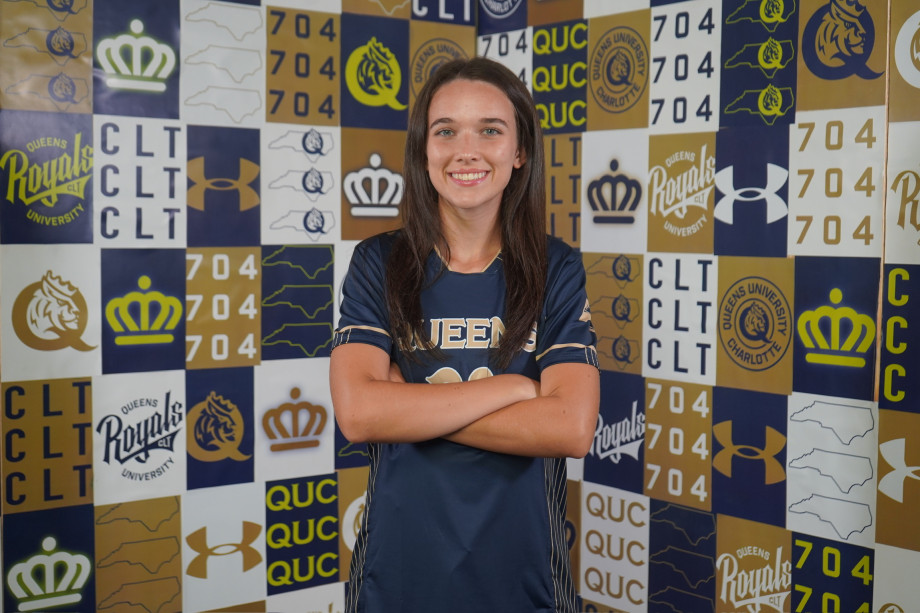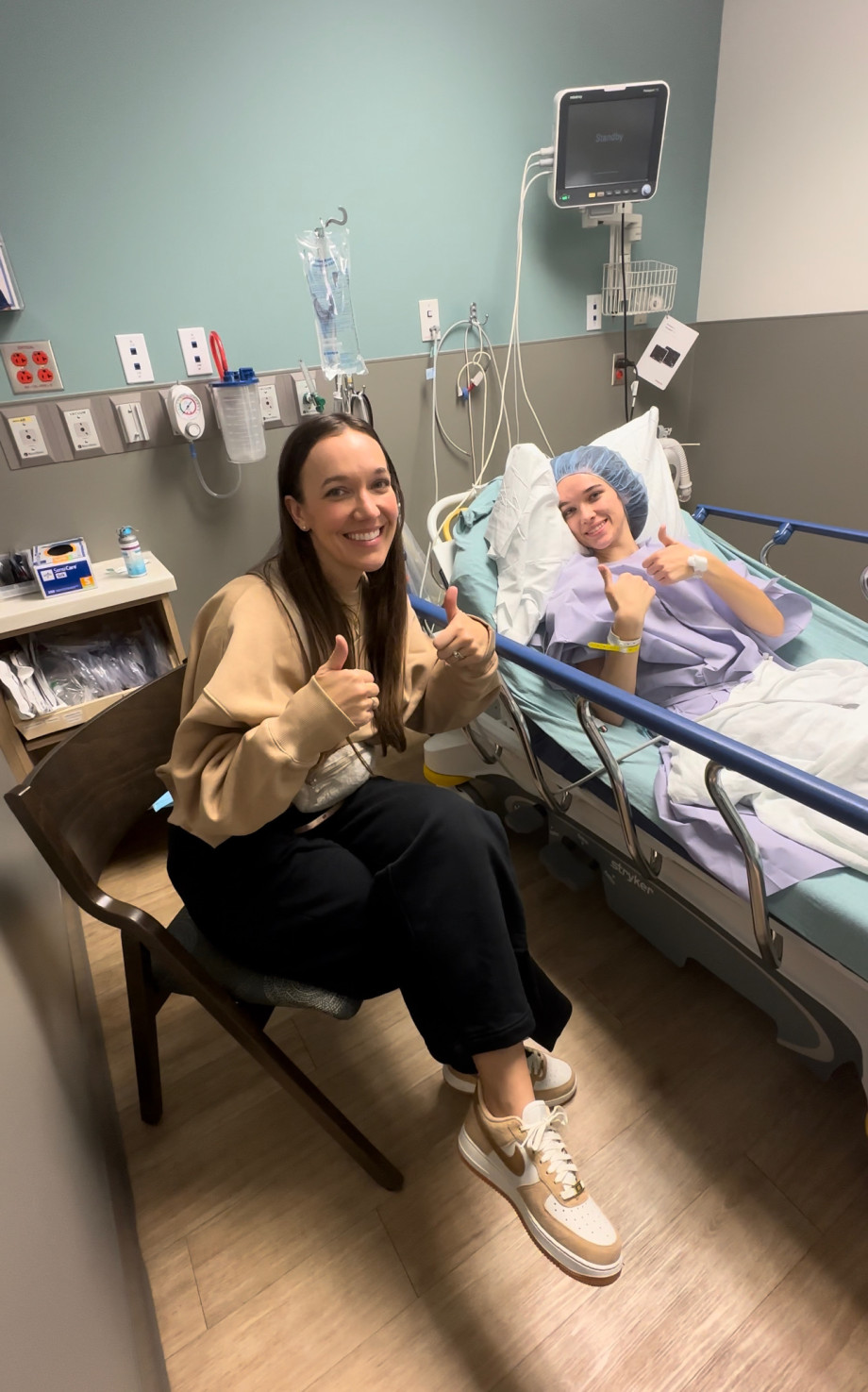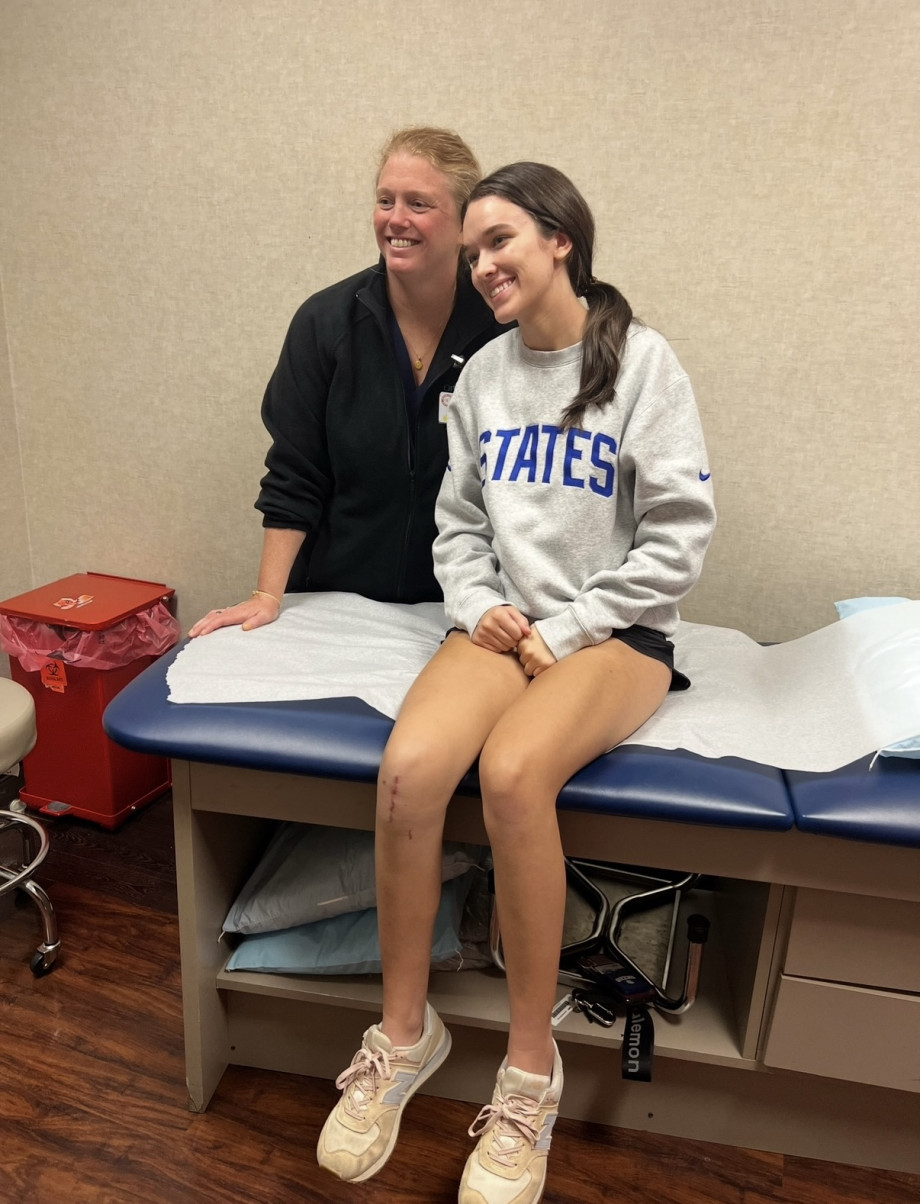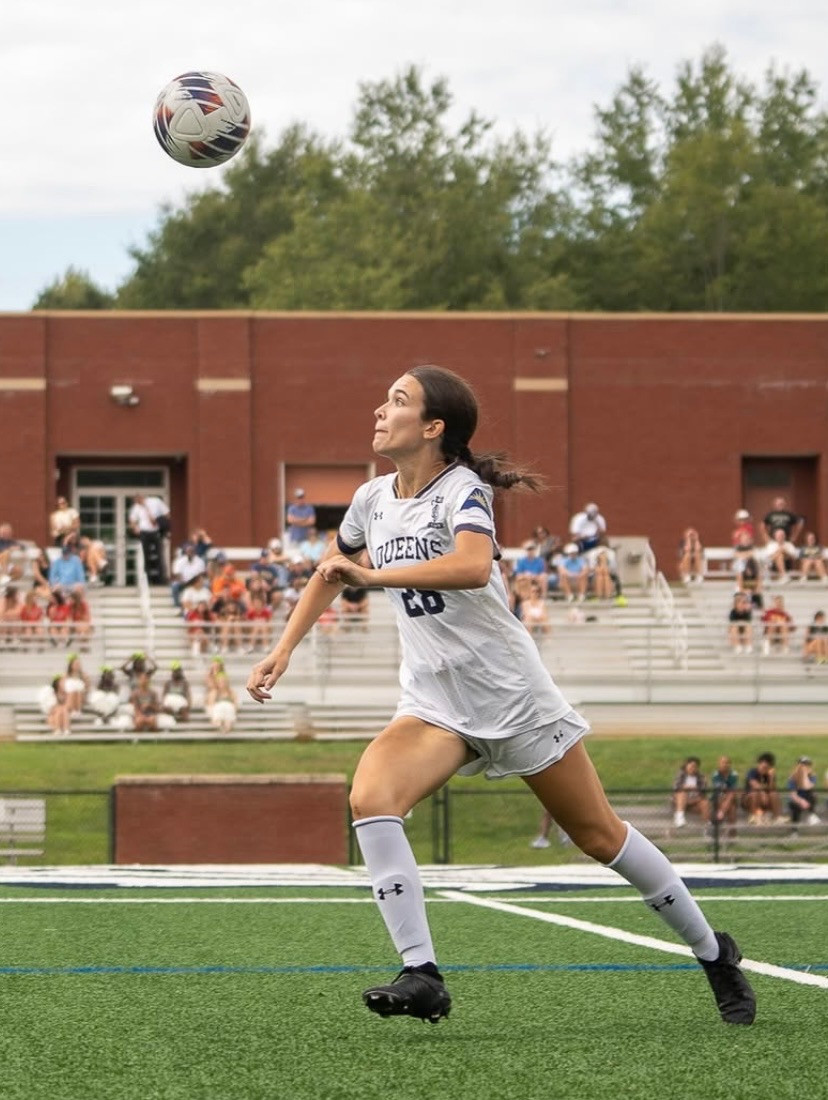Madison Murray, a former Division 1 soccer player, has always had a love for athletics. After experiencing a season-ending ACL tear her sophomore year at Queens University, she began a challenging journey of rehabilitation and recovery, ultimately returning to the game she loved. Madison graduated in May and finished her senior season on the field stronger and more determined than ever.

Silence After the Tear
Madison’s story begins February 2023, in practice during the team’s off-season. That morning, she had completed a team lift and the much-disliked “beep test” prior to their two-hour training. During a small scrimmage in practice, she was pushed from behind and immediately heard the dreaded “pop” from her ACL.
The Anterior Cruciate Ligament (ACL) is one of the key ligaments in the knee that stabilizes the joint connecting the femur and tibia. When torn, it can cause instability, limited range of motion, and significant pain. OrthoCarolina diagnoses and treats these conditions to help patients restore confidence in their knee function and mobility.

Why OrthoCarolina Was the Better Choice
In February of 2023, Madison’s university physician referred her to OrthoCarolina for ACL surgery. Dr. Dana Piasecki and his PA, Margaret Lynch, guided her through the surgical process and became integral parts of her recovery journey.
“Dr. Piasecki was the clear choice because he had successfully performed ACL reconstruction on my mom years prior,” Madison stated. “He’s a trusted name in the family and was a source of confidence going into recovery.”
She had surgery three weeks after the injury, and just over a year later, was able to return to playing.

Torn, Not Broken
Madison’s surgery went smoothly, as she was cycling on a stationary bike days after surgery, and running by four months. She attended physical therapy three times a week and followed a consistent home exercise routine, focusing on improving her knee’s range of motion. Within a week, her stitches were removed and she was off crutches, eager to walk again. By six weeks, she no longer needed her brace and began more advanced exercises such as squats and deadlifts.
ACL injuries often lead to a significant loss of quadriceps strength, and Madison experienced this. Regaining that muscle mass became one of her biggest challenges. Her progress stalled when she struggled to pass her quad strength test, a common milestone in ACL rehabilitation used to gauge readiness to return, which delayed her clearance to a year and a half after her injury. She stated, “Rejection [of passing the quad strength test] was the hardest part, especially when I felt 100% but couldn’t play.”
However, she stayed determined. Thanks to Dr. Piasecki and Margaret’s support, Madison was able to finish her senior year on the team. She especially leaned on Margaret, whose constant encouragement, kindness, and knowledge helped make a difference in her recovery. Margaret was there every step of the way, from pushing Madison during tough rehabilitation days to celebrating her small milestones.
“I truly couldn't have done it without Maragret,” Madison stated. “She believed in me on the days I didn’t believe in myself and pushed me to keep going, even when it was difficult.”

Back in the Jersey
Madison embraces every challenge as a chance to grow both mentally and physically. Her positive attitude keeps her motivated to stay active and explore new ways to enjoy the sports she loves. Since graduating, she has been playing tennis for fun, staying connected to the activities that matter most to her.
“Recovering taught me how strong I really am,” she reflects. “Listen to your body and don’t push through injuries.” With the support of the OrthoCarolina team, Madison has healed physically and found new strength and purpose in her life.
For more inspiring stories or information about our orthopedic services, visit OrthoCarolina.com.
Frequently Asked Questions
How can you prevent an ACL injury?
To prevent an ACL injury, focus on strengthening the muscles around your knee, especially the hamstrings and quadriceps. Incorporate balance training, proper jumping and landing techniques, and avoid sudden direction changes without support. Wearing proper footwear and warming up before activity can also help reduce your risk.
Can you still walk with an ACL injury?
Yes, many people can still walk with a torn ACL, especially if the injury is partial. However, the knee may feel unstable, weak, or give out during activity. Walking with an ACL tear can worsen the injury, so it's important to seek a medical evaluation before continuing daily activities.
How long does ACL injury recovery take?
ACL injury recovery time varies depending on the severity and treatment. Non-surgical recovery can take 2–3 months, while surgical recovery typically takes 6 to 9 months or more, especially for athletes returning to high-impact sports.
Back




Leave a Comment